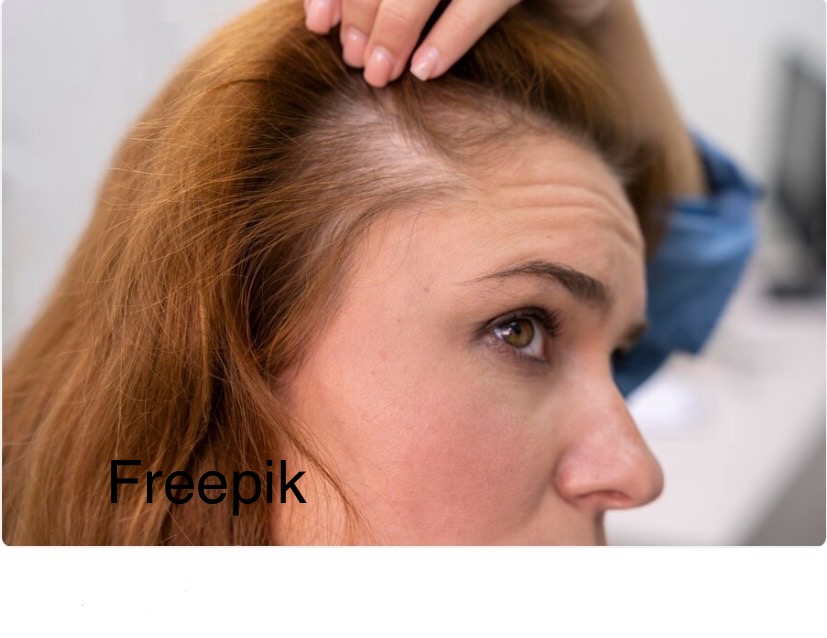Hair Loss during Midlife


Hair loss/shedding a common symptom during midlife. According to UK statistics It affects between 40-65% of women. We spend a small fortune on cutting, colouring our hair, styling it, buying products and equipment to style our hair. It gives us our identity and confidence so how does it feel when we notice clumps of hair in the hair brush or in the plug hole? Not that good.
What is happening?
The hair growth phase is called the Anagen phase of growth. The hair resting phase is called Telogen phase. During Menopause- shorter growth phase and longer resting phase leads to more shedding. This is related to reduced Oestrogen production but there are other causes too.
Other Causes
Genetics- Male Pattern Baldness Low Vitamin D, Anaemia Low B12, Low Zinc
Did you know that too much Vitamin A could lead to hair loss?
What can help. HRT. Increasing your Oestrogen levels. Why not see Diane? A healthy scalp; treating the cause of scalp disorders and scalp massage. Balanced diet Treating any known deficiencies. Biotin Marine Collagen may help too. Discussing possible causes with your GP.
But let’s hear from an expert!
Cheryl Adderley is a trichologist, hair loss, scalp and microscopy consultant specialising in menopausal hair and scalp problems. Her salons are based within the West Midlands and North Worcestershire.
Chery says; Some common symptoms that menopausal women may experience regarding hair and scalp include:
• Thinning Hair- A noticeable decrease in the fullness of hair.
• Hair Loss- Increased hair shedding or bald patches.
• Dry Scalp- A flaky or itchy scalp that can lead to discomfort.
• Dullness- Hair may appear lacklustre and less vibrant.
• Changes in Texture- Hair may feel coarser or different than before.
• Increased Breakage- Hair breaking off easily, leading to uneven lengths.
• Slow Growth- Reduced hair growth rate, making it hard to maintain styles.
• Oily or Greasy Scalp- Changes in oil production leading to an oily scalp.
• Scalp Disorders- Conditions like dandruff or seborrheic dermatitis may be exacerbated.
It is extremely important to address any problems you may have. Cheryl adds that her approach is to diagnose and treat using holistic treatments.
If you need more information or specific advice related to these symptoms, feel free to contact Cheryl here are her details.
https://hairlossandscalpclinic.co.uk/
cheryl@regenhairandscalp.co.uk
07585660932 or 0121-792-2572
Her Clinics. Castle Bromwich , Birmingham, Suyo Harborne and The Salon at Chaddesley Corbett North Worcestershire.
To discuss your HRT, to have blood tests or discuss anything menopause, please contact Diane www.bourne2care.co.uk




